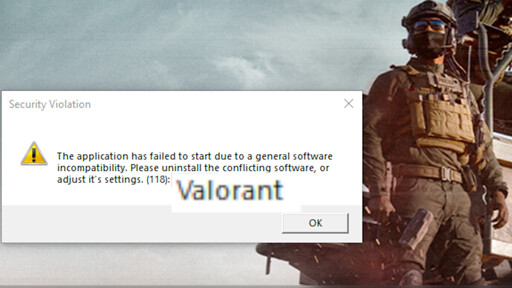
I can barely trust security companies to not screw up, let alone a game company running something at kernel level
Yep, every day “security solution Y had/has critical vulnerability”. And every second day “no patches yet”.
My experience with BF6.
Open beta required to watch twitch for 30 minutes to get a key to get early access. Got key, doesn’t work, says it’s invalid. Load up game, can’t play because it’s only early access beta and locked. Try again the next day, now the game won’t even start up saying secure boot must be enabled. Check bios, secure boot is enabled. Guess I can’t play BF6?
Article lost me at “The Girlies Are Fighting…”
Was this written by a sad puppy?
:gong_show_gong.gif:
Removed by mod
The headline makes it sound worse than it is.
From the article:
Riot head of anti-cheat Phillip Koskinas cleared up the misunderstanding in an X post earlier this week.
“Vanguard is compatible with Javelin, and you don’t need to uninstall one anti-cheat to use the other. However, BF6 does not currently allow the VALORANT client to be running simultaneously, because both drivers race to protect regions of game memory with the same technique.”
So, you can play play BF6 and VALORANT at the same time… not exactly a massive issues unless you’re running a mainframe, I guess?
deleted by creator
Bootlicker spotted.
deleted by creator
First, kernel level anti cheat is more akin to a business owner installing very invasive cameras, on your person, and they watch every little thing you do, including going to the bathroom. If they see something they don’t like, you gtfo of their store. Don’t know about you, but I wouldn’t willingly agree to go into a store like that.
Second, in a game like battlefield… Who cares if someone is cheating? It’s not a competitive shooter like CS or Valorant. If someone is cheating, change servers…
If you really care about cheating that much, get a console. Stop giving these companies the okay to install rootkits on your PC.
First up you’re comparing two completely different scales of bad things happening. If someone cheats in a game it doesn’t really meaningfully affect anyone, having your house broken into is a direct threat on your property. Locking a door has minimal downsides but allowing someone who can be trusted less than most corporations to have root access to your entire computer has a pile of risks and opens doors for worse. If anticheat is just to deter cheating then there’s no justification to have more access. If you can’t handle maybe having a match ruined then you shouldn’t be playing online games.
Do you lock your door at night? Why? Anyone could just use a fireman’s axe and open it. Or they could just drive through your living room and steal everything.
For kernel-level anti-cheats its quite simple. Those in opposition to kernel-level anti-cheats likely view locking a door as a small task with minimal downsides, which could reasonably deter an opportunistic criminal, or buy you time to escape with your life or call the police.
They also likely view kernel-level anti-cheats as, for the benefits they provide, having too large of downsides. (providing a third-party company kernel-level access via a closed-source program)
If you’re concerned about privacy just dual boot windows in a separate SSD to play games and use Linux and Graphene OS.
In another thread in this comment section I mention UEFI rootkits and firmware implants (kernel-level access is strong starting point for this). Your solutions do not address these issues, which could be important to someone. (Depending on their threat-model)




